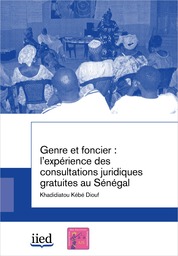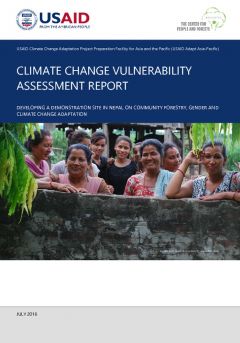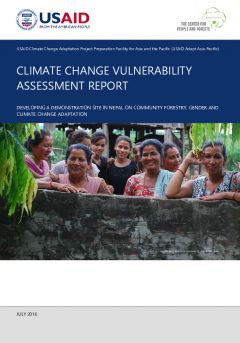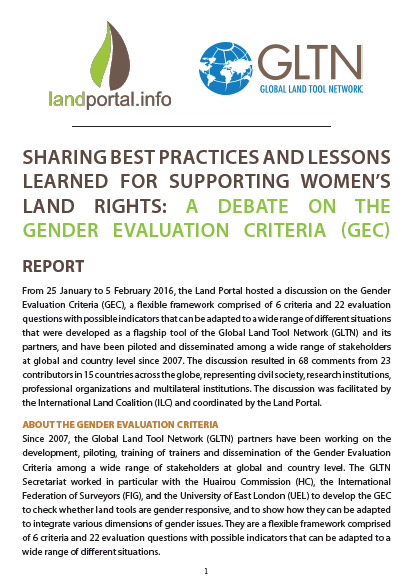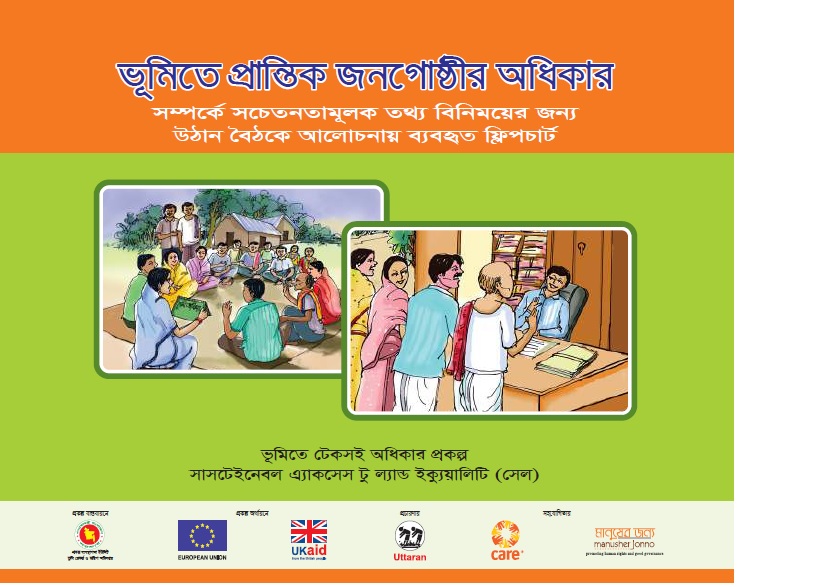Políticas Públicas e Desigualdades Sociais e Territoriais em Moçambique
As desigualdades de desenvolvimento e suas dinâmicas possuem razões políticas, económicas e sociais de longa duração. Estes factores influenciam os percursos históricos sobre as quais as políticas económicas e os poderes políticos procuram influenciar conjunturalmente sem que, na maioria dos casos, sejam efectivas mudanças fundamentais nas sociedades.
As desigualdades sociais e territoriais têm implicações sobre a estrutura e as dinâmicas do crescimento/desenvolvimento económico, sobre a estabilidade política e social e sobre a sustentabilidade ambiental, entre outros aspectos.
Country Programming Framework for Mozambique
This Country Programming Framework (CPF) sets out three government priority areas to guide the United Nations Food and Agriculture Organization (FAO) partnership and support with the Government of Mozambique – bringing together innovative international best practices and global standards with national and regional expertise during 5 years from 2016 to 2020.
Making Women’s Voices Count in Community Decision-Making on Land Investments
Examines options for strengthening women’s participatory rights in the face of increasing commercial pressures on land in 3 countries: Mozambique, Tanzania, and the Philippines. Focuses on how regulatory reform – reforms in the rules, regulations, guidelines, and procedures that implement national land acquisition and investment laws – can promote gender equity and allow women to realize the rights afforded by national legal frameworks and international standards.
Climate Change Vulnerability Assessment Report: Developing a Demonstration Site in Nepal on Community Forestry, Gender and Climate Change Adaptation
In this context, RECOFTC and USAID Adapt Asia-Pacific have developed a framework for better understanding and assessing climate change vulnerabilities in a context of multiple competing interests in a CF landscape. The pilot site for developing this approach was a women-led Community Forestry User Group (CFUG) in the Terai of Nepal; the Bishnupur community forest. The context in Bishnupur reflects challenges associated with the ecologically fragile Chure Forest, but also one of growing opportunities for economic development due to the close proximity of the Indian border.
Climate Change Vulnerability Assessment Report: Developing a Demonstration Site in Nepal on Community Forestry, Gender and Climate Change Adaptation
This report is part of the USAID Climate Change Adaptation Project Preparation Facility for Asia and The Pacific project and details efforts to establish a long-term demonstration site in Nepal to identify CF-CCA interventions through participatory approaches, develop proposals for priority interventions, access external finance for a minimum of one intervention, and then implement the intervention(s) through the women-led CFUG.
When investors come knocking: ensuring African women have a say
In much of sub-Saharan Africa, women have little say in decisions over land. Unless proactive steps are taken to enable women to have a stronger voice, large-scale agribusiness projects will leave them even more marginalised. Though there has been little research in this area, an emerging body of thinking and practice provides clear pointers as to how governments, NGOs and investors might mitigate such risks in future, particularly by explicitly addressing gender issues head-on from the very outset.
Decision-Making and Joint Control Rights over Land in Rwanda
Report explores and analyses community perceptions of the obstacles facing women’s participation in decision-making about jointly held land. Also examines the factors that prevent women from participating in community-level decision-making structures, specifically those related to land. Conducted in 4 districts of Rwanda: Ngororero and Rutsiro (Western Province), Huye (Southern Province) and Ngoma (Eastern Province).
¿Quién cuida en la ciudad?: oportunidades y propuestas en Montevideo (Uruguay)
El presente estudio pretende contribuir al debate sobre políticas de cuidados enfocando la mirada en las ciudades latinoamericanas, en esta ocasión específicamente en Montevideo.
Report - Sharing Best Practices and Lessons Learned for Supporting Women’s Land Rights: A Debate on the Gender Evaluation Criteria (GEC)
From 25 January to 5 February 2016, the Land Portal hosted a discussion on the Gender Evaluation Criteria (GEC), a flexible framework comprised of 6 criteria and 22 evaluation questions with possible indicators that can be adapted to a wide range of different situations that were developed as a flagship tool of the Global Land Tool Network (GLTN) and its partners, and have been piloted and disseminated among a wide range of stakeholders at global and country level since 2007.
Marginalized people's accesss to Land in Bangladesh
Utaran began work on the Sustainable Access to Land Equality (SALE) project to ensure transparency and accountability in land governance in December 2012. The project engaged communiies in three pilot upazilas - Amtali Upazila of Barguna District, Mohanpur of Rajshahi, and Sadar of Jamalpur - to raise the awareness of vulnerable landowners about land administraion, and to effect transparent processes for a) selecing landless people and b) khasland setlement.
Women’s Land Rights Mapping in India in the Context of the SDGs
The study examined the status of women’s land rights in India, using Agricultural Census data, with state-wise and district-wise granularity and presents tables and maps depicting women’s land rights against indicators, further segregated across ethnicity and socio-economic categories. It also reiterates necessity to establish a robust and participatory monitoring mechanism for the status and change of women’s land rights at state, district and tehsil levels. This study was conducted by Center for Land Governance, NRMC with support from the World Bank.

